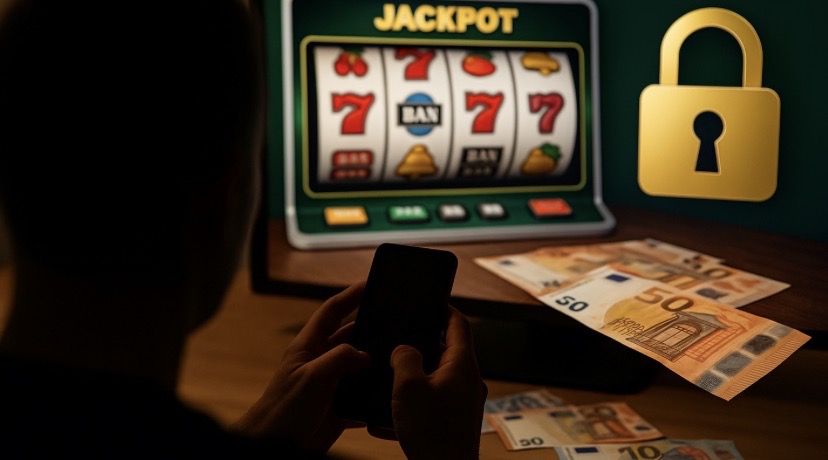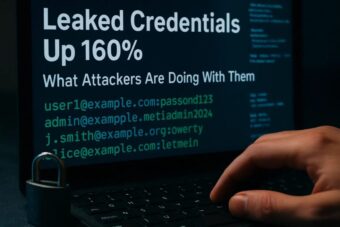Online casinos have transformed the gambling industry. With 24/7 access, real-money stakes, and flashy user interfaces, they offer instant entertainment—and instant risk. While legal platforms operate under strict regulations, a growing number of illegitimate operators pose serious threats to users. Many players are unaware that by logging into an unsecured site, they may be handing over more than just their deposit.
The Federal Office for Information Security in Germany (BSI) reported a sharp increase in cyberattacks linked to online gambling in 2024. Tactics range from phishing emails to fake apps, data interception, and unauthorized transactions. According to G.Business, these trends reflect a broader shift in how cybercriminals exploit digital entertainment platforms. Protecting yourself in this environment requires more than common sense—it demands cybersecurity literacy.
Choose licensed, regulated platforms only
Not all online casinos follow the law. Some operate without any valid license, while others hide behind foreign jurisdictions with lax oversight. These platforms are not bound by consumer protection, security standards, or dispute resolution processes. Playing on them puts your funds and personal data at serious risk.
To stay safe, always verify if a platform is regulated by your national gambling authority. In Germany, for instance, this means a license from the Gemeinsame Glücksspielbehörde der Länder (GGL). Licensed casinos are required to implement player protection features, secure payment gateways, and identity verification processes.
How to verify a licensed casino
- Check for a valid license number on the site (usually in the footer)
- Look up the operator on official gambling authority websites
- Avoid sites with no legal information or incomplete contact details
Use two-factor authentication (2FA) to secure your account
A strong password alone is no longer enough. Hackers often obtain login credentials from previous data leaks or use brute-force methods to access accounts. Two-factor authentication (2FA) adds a critical layer of protection: even if your password is compromised, a second device (like your phone) is required to log in.
Most reputable casinos now support 2FA. You can activate it via your account settings and pair your login with apps like Google Authenticator or Authy. The process takes only a minute but significantly improves account security.
Recommended 2FA apps
- Google Authenticator
- Authy
- Microsoft Authenticator
- Duo Mobile
Never share personal data via email
Phishing is one of the most common threats in online gambling. Scammers send emails that look like they come from a legitimate casino, asking you to verify your account, claim a bonus, or update your payment method. These emails often include links to fake websites that steal your credentials and financial information.
To stay safe
- Never click on links in unsolicited emails
- Always go directly to the casino website by typing the URL
- Do not send ID documents, passwords, or payment data via email
Signs of a phishing email
- Urgent language (“Your account will be closed!”)
- Email address that doesn't match the casino domain
- Typos or awkward formatting
- Links that redirect to strange or unrelated URLs
Install only official casino apps
With the rise of mobile gaming, casino apps have become a prime target for cybercriminals. On Android devices in particular, users can easily download modified apps (.apk files) from unknown sources—many of which are infected with malware. These apps may spy on your activity, steal login details, or manipulate games.
Only download apps from:
- Google Play Store
- Apple App Store
- The official casino website (verify the domain)
App safety checklist:
- Publisher name matches the casino operator
- High number of verified reviews
- Recently updated
- Clear and consistent branding in screenshots and app description
Always use a VPN on public Wi-Fi
Accessing your casino account over public Wi-Fi—at a hotel, café, or airport—is a major security risk. Open networks can be intercepted, and attackers may monitor your session or redirect you to fake websites. The safest way to gamble on the go is with a Virtual Private Network (VPN).
A VPN encrypts all traffic between your device and the internet, making it extremely difficult for third parties to see what you're doing.
Trusted VPN providers
| Provider | Logs Policy | Free Option | Based In |
|---|---|---|---|
| ProtonVPN | No logs | Yes | Switzerland |
| NordVPN | No logs | No | Panama |
| Mullvad | No logs | No | Sweden |
Review your payment history and bank statements
Even with precautions, issues can still arise—especially with recurring payments or unfamiliar transaction names. Some players discover fraudulent charges only after weeks of inattention. Reviewing your statements regularly can help you catch suspicious activity early.
Key things to check:
- Micro-transactions you didn’t authorize (e.g., €0.01)
- Charges from unknown vendors or outside your country
- Delayed or missing withdrawal payments
- Unexpected card storage on casino platforms
If you see any issues, contact your bank immediately and request a block or refund.
Don't store your credentials in your browser
Browsers often offer to save login details for convenience—but if your computer is compromised, these saved passwords can be extracted by malware. Instead, use a dedicated password manager with encryption and multi-device sync.
Top choices:
- Bitwarden (free, open source)
- 1Password (paid, very secure)
- KeePassXC (offline, open source)
Summary Table: Key Threats and Protection Measures
| Threat | Protection |
|---|---|
| Phishing emails | Never click email links; type the URL manually |
| Weak or reused passwords | Use 2FA and a password manager |
| Fake or modified apps | Download only from official stores |
| Public Wi-Fi interception | Always use a VPN |
| Fraudulent transactions | Monitor statements and enable notifications |
Awareness is Your Strongest Defense
Online casinos are here to stay—and so are the cybercriminals who exploit them. But staying safe is not about luck; it’s about preparation. By taking control of your security settings, verifying the legitimacy of platforms, and using basic cybersecurity tools, you can enjoy online gambling without putting your identity or money at risk.
It’s not about paranoia—it’s about digital responsibility.
Stay connected for news that works — timely, factual, and free from opinion. Learn more about this topic and related developments here: chwoot: he sudo flaw that turns local Linux users into root – in seconds

